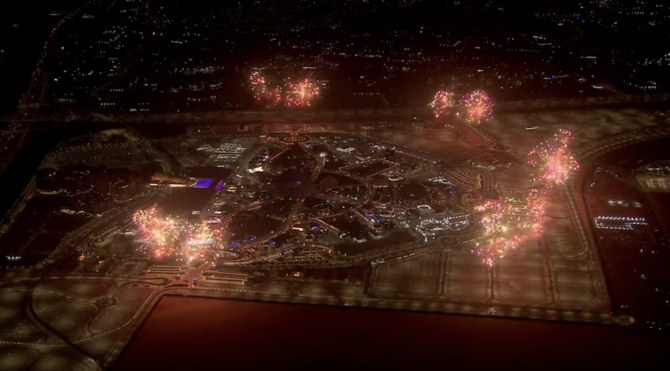
- ARAB NEWS
- 05 Jul 2025

A pandemic brought the world to a standstill and, consequently, Dubai’s Expo 2020 was delayed. A year after its original scheduled date, it opens to the world on Friday — and it is like an announcement that our long-awaited path to recovery has started. COVID-19 forced the world to stop, but also put forward questions on how to make it better; questions about the viability of existing models, whether business or social. In short, what do we want our rebuilt world to look like and what should be changed?
There is serendipity in the fact that Expo 2020 signals the reset after the pandemic, especially when we investigate its themes. We should all pay close attention to the themes and messages that Expo 2020 has developed, with a focus on looking for collaborative solutions to some of the most pressing challenges of our time: Health and wellness, climate and biodiversity, urban and rural development, and tolerance and inclusivity, to name a few. But the one I am most looking forward to is space.
This is simply because I believe that, just as the original universal expositions at the end of the 19th century were a signal of the start of Europe’s rapid economic growth and global dominance in the wake of the Industrial Revolution, Expo 2020 not only announces the ascendency of the digital revolution, but also the space revolution. The coming decades will undoubtedly be the decades of space. Every aspect of our lives will be transformed by this quest.
I cannot help believing that many of the technologies that are starting to emerge and are being adopted on Earth will find their true and greater purpose in space: 3D printing, lab-made food, genetics, robotics, artificial intelligence, blockchain (decentralized ledgers and systems), renewable energy, etc. All these technologies are essential for a sustainable life in space and on new planets. Moreover, the rocket launches that fascinate the world today are only a part of the infrastructure that is being designed, developed and built. This infrastructure will allow for the development of layers of applications and the emergence of a new breed of space entrepreneur.
And, in the same way, many of the advances that are being achieved for space will improve our lives on Earth. This has already started, in fact, as space is likely to have the biggest role in the environmental side of environmental, social and governance. Space-based data from satellites will be the most efficient way for companies to track their environmental goals. This can help mitigate severe climate change risks. Energy security, food security and water security are themes that the sector helps solve. Beyond these future projects, space is already a vibrant and strong industry, with proven successes of collaboration between the private sector and public institutions. It is, nevertheless, only the beginning.
Let us stop talking about a leap-frog strategy and instead put in place a warp-drive strategy for space.
Khaled Abou Zahr
In that sense, Expo 2020 is indeed the announcement of the space revolution. To that effect, UAE Minister of State for Advanced Technology and Chairwoman of the UAE Space Agency Sarah Al-Amiri will lead the topic with the latest in space research and travel, as well as the role of women in this advancement. It is, in my view, a great chance to look seriously into the opportunities this challenge offers the Middle East and Europe.
So Expo 2020 also asks important questions that need answers: What will be the Middle East’s place in this revolution? What will be Europe’s? How will we contribute to the exploration of new frontiers? How do we make sure these objectives create better lives for all? For me, a beginning to the answer comes in the description of Expo 2020’s approach: Collaborative solutions. Some might ask why this is important for the Middle East and Europe. It is simply because, together in this race, we have our place. We should have the ambition and audacity to aim for leadership. Let us stop talking about a leap-frog strategy and instead put in place a warp-drive strategy for space.
Expositions are also about enjoyment and discovery, and hopefully this edition will offer an eye-opening experience about space. It should start with Alif — The Mobility Pavilion, which highlights the UAE’s space program and its Hope mission to Mars. There is also the Swiss pavilion, which highlights the perils of space junk — unused materials left in space as a result of human activity. This creates awareness of the importance of the circular economy. The Luxembourg pavilion showcases how the smart use of resources supported the emergence of an energetic space industry. On Saturday, visitors will be able to witness Thomas Pesquet, the French astronaut, calling live from the International Space Station.
However, the ones I would like to see embrace this theme and visit the many pavilions that have dedicated a space to space (pun intended) is the youth. Through entertainment, Expo 2020 is a great source of knowledge that can create the spark for this change. It is also about inspiring future generations to reach for bigger and greater goals. I think that children looking at the collection of rock samples, including some from the surface of the Moon and even a Martian meteorite, on display in the US pavilion, as well as all the advances in space technology on show, will be eager to learn and understand more.
I personally want to see more of Europe’s and the Middle East’s youths not only dream of being an astronaut, but also of being among the entrepreneurs that make space exploration possible and safe. This is the impact I hope Expo 2020 Dubai will have.